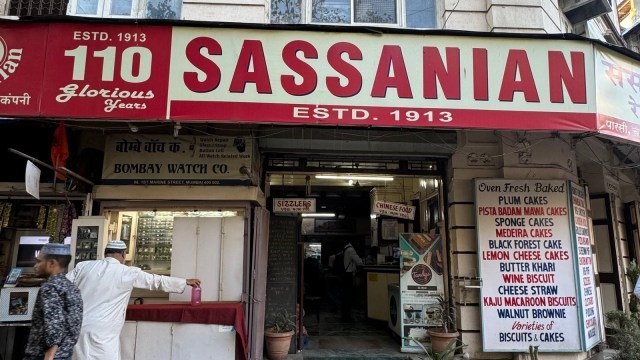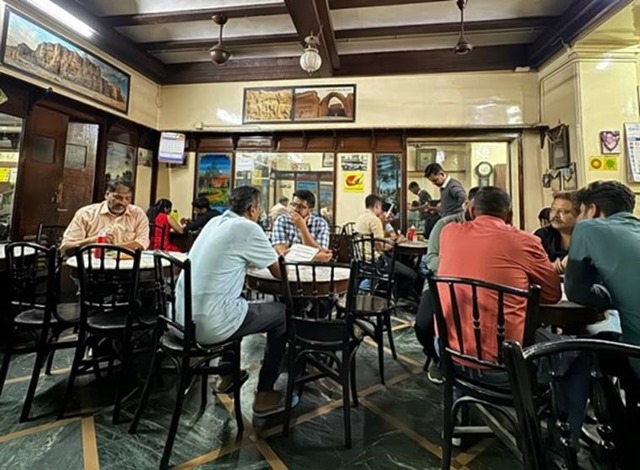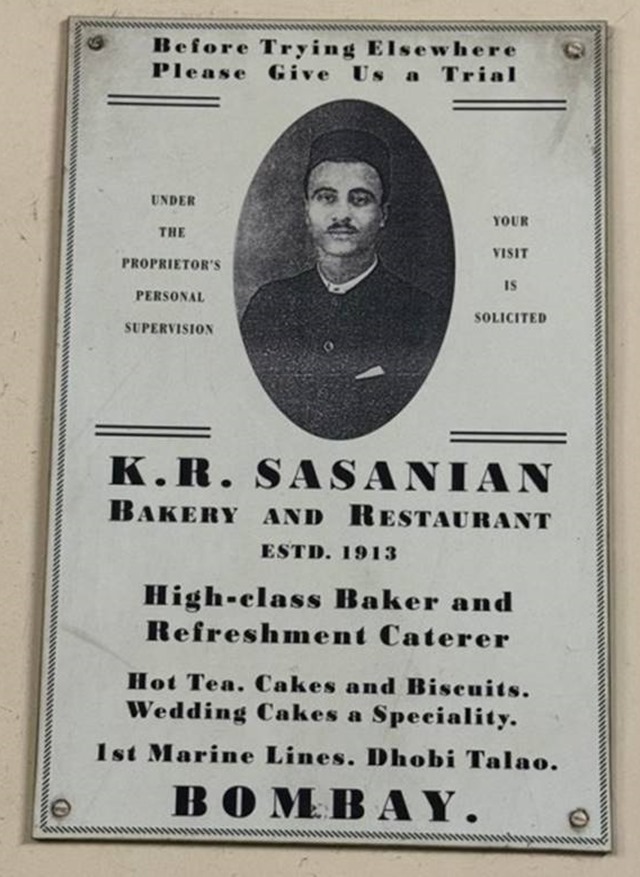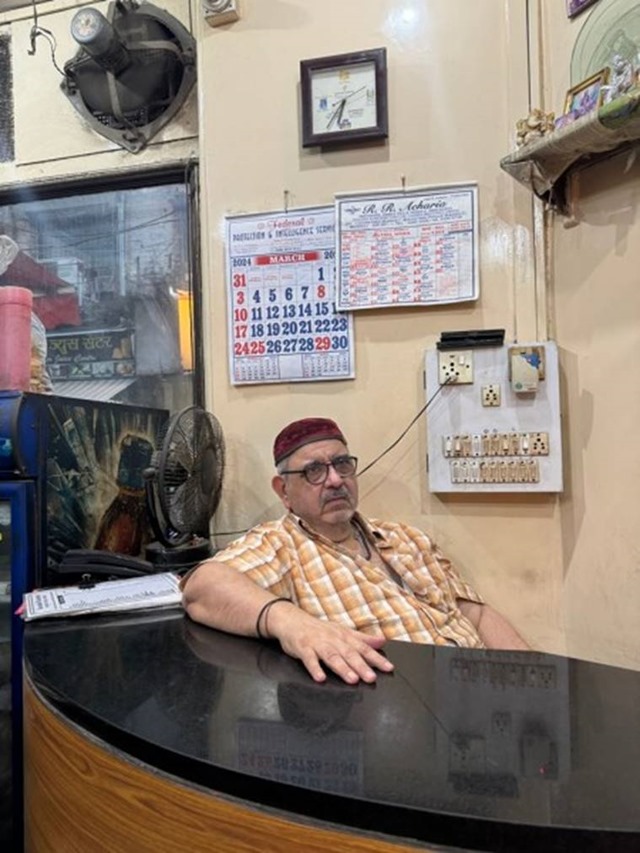As the Dhobi Talao-based Parsi food joint Sassanian Boulangerie completes 111 years, we look at the years gone by and how they managed to remain afloat.
Article by Heena Khandelwal | Indian Express
With its 111-year-old charm, it promises a timeless and budget-friendly dining experience. (Express Photo)
Time seemed to pause as we entered Dhobi Talao-based Sassanian Boulangerie, a Parsi eatery. The dimly lit space with yellow walls adorned with wooden panelling, vintage mirrors, and reverse glass paintings – all quintessential features of an Iranian restaurant in Mumbai – exudes nostalgia. Original bentwood chairs and marble-topped tables fill the room, while Iranian landmarks adorn the walls alongside old-fashioned signages. With its 111-year-old charm, it promises a timeless and budget-friendly dining experience.
Established on Nowruz (Persian New Year) in 1913 by Rustam K Yazdabadi as K R Sassanian Bakery and Restaurant, the Parsi eatery started as a whole-day breakfast joint serving omelette, brun maska, pudding, mawa cake and biscuits. Like many eateries of its era, it doubled as a general store, selling essentials like soap and toothpaste.
“When the founder passed away in 1947, my father Khodadad Meheraban Kola, who previously worked at the neighbouring Parsi eatery Kyani’s & Co, joined Sassanian as a partner. He operated the business alongside Yazdabadi’s wife Perin K Irani,” shared Meheraban Khodadad Kola, one of the three current partners of the iconic food joint. The other partners are Steven Adi Yazdabadi and Irandokht Rustom Behjat. Kola, a stalwart 73-year-old Parsi gentleman, frequents the place every evening, arriving at 6 pm and departing after the shutter rolls down at 9 pm.
Established on Nowruz (Persian New Year) in 1913 by Rustam K Yazdabadi as K R Sassanian Bakery and Restaurant, the Parsi eatery started as a whole-day breakfast joint serving omelette, brun maska, pudding, mawa cake and biscuits. (Express Photo)
“Once upon a time, we opened at 5 am and closed at 11 pm,” he recalled, reminiscing about the bustling business of yesteryears. “During my father’s era, my uncle Khodu Irani, a renowned horse trainer who had trained horses for Raj Kapoor and Mahmood, lived nearby. Jockeys would gather here as early as 5 am before heading to the racecourse,” he shared, adding that through the day, the eatery would see a lot of passengers drop by, courtesy of Marine Lines station, which used to be very close by in those days.
“Even though the demand was largely for chai and brun maska, which were available for 10 paise and 20 paise respectively, it was a golden time. When the station relocated, we saw a decline in customers,” he added. Even today, the tea and brun maska, now priced at Rs 20, remain a beloved choice among patrons. During our visit on a weekday evening, the cafe buzzed with individuals, groups, and couples enjoying their tea alongside brun maska, chicken roll (Rs 100) or burger (Rs 120).
Like many eateries of its era, it doubled as a general store, selling essentials like soap and toothpaste. (Express Photo)
Kola took over the cafe in the 1990s after his father’s passing. The initial years were tough. “After my father’s death, I slipped into depression. The place was running on autopilot mode. At one point, we were doing nothing,” he shared. He credited his wife Ruhangeez M Kola, great-granddaughter of the founder, for revitalising the restaurant and saving it from decline.
“In 1997, we expanded the menu to include chicken rolls, puffs, and other snacks. We introduced a lunch and dinner menu with Parsi dishes, Chinese items, and sizzlers five years later. With the help of chef Bhushan from Taj Hotels, the place gained popularity among office-goers for its value-for-money offerings,” he explained. “People still love our dhansak (Rs 250), sali kheema (Rs 190) and sizzlers (Rs 370 onwards),” he added, noting that the prices continue to remain conservative following his father’s philosophy of “providing value for money experience and earning blessings from customers in return.”
Meheraban Khodadad Kola is one of the three partners of the iconic Parsi eatery. (Express Photo)
“While the business recovered, the pandemic dealt a harsh blow to the restaurant,” he lamented. “It hasn’t been the same ever since.” Reflecting on what sustains the establishment, he emphasised, “It is the nostalgia of the older generation, along with the eatery’s iconic status that brings in a lot of customers over the weekends.” He has pinned his hopes on his son, who is currently in Canada, to return and continue the legacy.
If you are a fan of their delectable soft mawa cakes (Rs 30), fragrant with cardamom, you have Kola’s father to thank. He acquired the recipe from diners at Kyani’s, refining it over time before introducing it at Sassanian Boulangerie.





I will definitely visit The Sassanian Restaurant when I’m in India next time. I have seen it many times passing by but never thought it had so much to offer.